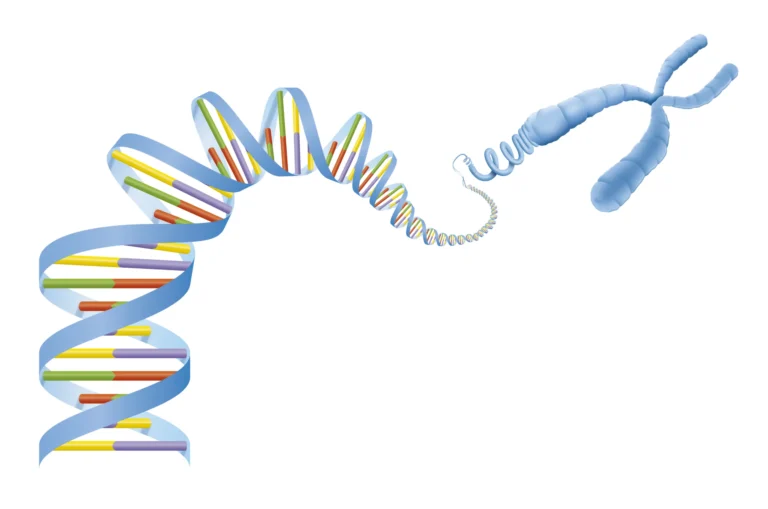Computational Pharmacogenotype Extraction from Clinical Next-Generation Sequencing
Did you know that computational pharmacogenotype extraction is revolutionizing personalized medicine through the analysis of genetic testing data?

With the advent of next-generation sequencing (NGS), such as whole genome sequencing (WGS) and whole exome sequencing (WES), computational methods have become indispensable in extracting pharmacogenetic information from clinical NGS data. These methods leverage machine learning and data mining techniques to analyze vast amounts of genomic data, enabling clinicians to tailor treatment plans based on individual genetic profiles.
In this article, we delve into the world of computational pharmacogenomics and its implications for personalized medicine. We explore the accuracy and validity of computational methods, such as the Aldy computational method, in extracting pharmacogenotypes from clinical NGS data. Additionally, we discuss the role of computational tools in predicting the functional impact of genetic variants and their potential in guiding precise treatment decisions.
Key Takeaways:
- Computational pharmacogenotype extraction is transforming personalized medicine by utilizing genetic testing data.
- Next-generation sequencing provides a wealth of genomic information that computational methods can analyze to extract pharmacogenotypes.
- The Aldy computational method has demonstrated high accuracy in calling diplotypes from clinical NGS data.
- Computational prediction algorithms enable the assessment of functional impact for missense variants.
- Computational tools play a crucial role in translating genomic data into clinically actionable treatment recommendations.
Assessing Computational Accuracy in Pharmacogenotype Extraction
In a study assessing the accuracy of computational pharmacogenotype extraction, the Aldy computational method was used to extract PGx genotypes from whole genome sequencing (WGS) and whole exome sequencing (WES) data. The study included 264 patients with germline DNA samples obtained from a molecular solid tumor board.
Comparison with panel-based genotyping revealed that Aldy v3.3 and v4.4 called diplotypes for major pharmacogenes with over 99% accuracy from clinical NGS data. This demonstrates the high level of computational accuracy achieved by the Aldy method in pharmacogenotype extraction.
The study also identified additional clinically actionable star alleles not covered by genotyping, highlighting the potential of computational methods in utilizing clinical NGS data for informing clinical pharmacogenomics (PGx). This further emphasizes the importance of employing accurate computational methods, such as Aldy, in extracting pharmacogenetic information from clinical NGS data for personalized medicine.
The Aldy Computational Method in Pharmacogenotype Extraction
The Aldy computational method is a powerful tool in extracting pharmacogenotypes from WGS and WES data. Developed by a team of researchers, Aldy has been extensively evaluated for its accuracy in calling diplotypes for major pharmacogenes from clinical NGS data. With its exceptional computational accuracy of over 99%, Aldy is proving to be a valuable asset in the field of clinical pharmacogenomics.
Utilizing Clinical NGS Data for Personalized Medicine
The accurate extraction of pharmacogenotypes from clinical NGS data enables the application of personalized medicine. By leveraging computational methods like Aldy, clinicians can utilize the wealth of genomic information in WGS and WES data to optimize drug selection, dosage, and treatment regimens based on an individual’s unique genetic profile.
Importance of Computational Pharmacogenomics in Personalized Medicine
Personalized medicine is revolutionizing healthcare by tailoring treatment plans to the unique genetic makeup of each individual. Genetic testing plays a crucial role in identifying genetic variations that can impact an individual’s response to medication. However, the sheer volume of genetic data generated by these tests can be overwhelming and challenging to interpret.
This is where computational pharmacogenomics comes into play. By harnessing the power of computational approaches, such as the Aldy computational method, clinicians can effectively analyze and interpret genetic testing data to guide personalized treatment decisions.
Computational pharmacogenomics involves the use of advanced algorithms and machine learning techniques to extract pharmacogenotypes from clinical next-generation sequencing (NGS) data. These pharmacogenotypes provide critical information about an individual’s genetic predisposition to drug response, metabolism, and toxicity.
By integrating computational pharmacogenomics with clinical NGS data, healthcare practitioners can optimize drug selection, dosage, and regimen for each patient. This personalized approach minimizes the risk of adverse drug reactions and maximizes therapeutic efficacy, ultimately improving patient outcomes.
For example, a pharmacogenetic algorithm can analyze a patient’s genetic data to determine whether they are a rapid, normal, or poor metabolizer of a particular drug. This information can guide dosage adjustments to ensure that the patient receives an optimal amount of medication based on their unique genetic profile.
Additionally, computational pharmacogenomics allows clinicians to identify and mitigate potential drug-drug interactions or adverse drug reactions based on a patient’s genetic makeup. This proactive approach reduces the likelihood of medication-related complications and enhances treatment safety.
“Computational pharmacogenomics enables personalized medicine by leveraging genetic testing data to inform treatment decisions.”
The benefits of computational pharmacogenomics extend beyond individual patients. By aggregating and analyzing genetic data from large populations, researchers can gain valuable insights into the genetic basis of drug response across different populations. This knowledge can inform the development of new medications and therapies that are tailored to specific genetic subgroups, further advancing precision medicine.
In conclusion, computational pharmacogenomics plays a pivotal role in personalized medicine by utilizing genetic testing data to optimize treatment plans based on an individual’s genetic profile. This integration of computational approaches with clinical NGS data empowers clinicians to deliver personalized care, enhance treatment safety, and improve patient outcomes.
Next-Generation Sequencing and Clinical Pharmacogenomics
Next-generation sequencing (NGS) technology, specifically whole genome sequencing (WGS) and whole exome sequencing (WES), has gained significant prominence in the field of clinical pharmacogenomics. The ability to comprehensively analyze an individual’s genetic makeup using NGS has revolutionized personalized medicine by providing valuable insights into the pharmacogenetic factors that influence drug response.
However, the validation of computational approaches that utilize NGS data for clinical pharmacogenomics has been limited. It is crucial to ensure the accuracy and reliability of these computational methods in extracting meaningful pharmacogenetic information from clinical NGS data.
To address this, a recent study assessed the accuracy of the Aldy computational method in extracting pharmacogenetic genotypes from clinical WGS and WES data. The study aimed to determine the concordance between Aldy v3.3 and v4.4 calls and genotyping reference standards, thereby validating the use of computational methods in extracting pharmacogenetic information from clinical NGS data.
The results of the study demonstrated high concordance between the Aldy computational method and genotyping reference standards, supporting the use of computational approaches for extracting pharmacogenetic genotypes from clinical NGS data. This validation reinforces the reliability of computational methods in leveraging NGS technology for clinical pharmacogenomics.
A crucial aspect of clinical pharmacogenomics is the utilization of computational approaches to analyze large amounts of clinical data. By harnessing computational power, researchers and clinicians can effectively process and interpret complex genomic data, enabling the identification of pharmacogenetic factors that influence drug response.
Moreover, the integration of computational approaches with clinical data allows for the extraction of pharmacogenetic genotypes, which can further inform personalized treatment plans. These computational methods enable clinicians to tailor drug selection, dosage, and treatment regimens based on an individual’s unique genetic profile, ultimately improving patient outcomes in precision medicine.
“The validation of computational approaches using clinical data has significant implications for the field of clinical pharmacogenomics. It allows us to leverage the power of next-generation sequencing technology to extract meaningful pharmacogenetic information, facilitating personalized treatment decisions.”
The table below summarizes the key findings from the study on the accuracy of the Aldy computational method in extracting pharmacogenetic genotypes from clinical NGS data:
| Aldy Version | Accuracy in Calling Genotypes |
|---|---|
| Aldy v3.3 | High concordance with genotyping reference standards |
| Aldy v4.4 | High concordance with genotyping reference standards |
These findings highlight the potential and reliability of computational approaches in extracting pharmacogenetic genotypes from clinical NGS data. The integration of computational methods with clinical pharmacogenomics holds immense promise in advancing personalized medicine and improving patient outcomes.
Computational Prediction of Functional Impact of Genetic Variants
Computational prediction methods play a crucial role in unraveling the functional impact of genetic variants. Among these variants, missense variants are of particular interest as they result in amino acid substitutions within proteins, potentially leading to significant changes in protein functionality.
To assess the functional impact of missense variants, computational algorithms leverage various sources of information, including sequence data, evolutionary conservation, and structural characteristics. These algorithms are trained on vast datasets and employ sophisticated machine learning techniques to generate predictions on the potential impact of genetic variants.
By analyzing sequence information, computational algorithms identify similarities and differences between the wild-type and variant amino acids. They also consider evolutionary conservation, which helps evaluate the degree of molecular constraint on specific amino acid positions. Additionally, these algorithms incorporate structural data, such as protein structures or protein-protein interaction networks, to gain insights into the potential effects of missense variants on protein functionality.
Through the integration of these diverse sources of data, computational prediction methods can provide valuable insights into the functional consequences of genetic variants. By understanding how missense variants perturb protein function, researchers and clinicians can gain critical information for personalized medicine, drug development, and disease understanding.
“The ability to computationally predict the functional impact of genetic variants is instrumental in advancing our understanding of the genetic basis of diseases and guiding personalized treatment decisions.”
Current Challenges and Future Directions
Despite the advancements in computational prediction methods, several challenges remain in accurately assessing the functional impact of genetic variants. The complexity of protein functionality, the intricate interplay between genes and environment, and the limited understanding of the non-coding regions of the genome pose ongoing hurdles.
While computational algorithms primarily focus on missense variants, there is a need to expand their scope to non-coding variants. These variants, although they do not lead to amino acid changes, can still influence gene expression and regulatory processes, contributing to disease susceptibility and drug response. Developing computational tools that incorporate genomic sequence alignments to accurately predict the functional consequences of non-coding variants will be a crucial future direction in this field.
Challenges in Functional Interpretation of Pharmacogenetic Variants
The functional interpretation of pharmacogenetic variants presents unique challenges due to their limited evolutionary conservation and lack of association with human disease in pharmacogenes. Traditional computational prediction methods, which rely on evolutionary conservation scores, do not fully capture the functional impact of these variants.
Unlike other genetic variants associated with diseases, pharmacogenetic variants exhibit specificity in their effects on drug response. This specificity requires the development of specialized computational tools that can accurately predict the functional consequences of pharmacogenetic variants.
Uncovering the Functional Impact
Pharmacogenetic variants may not possess the same level of evolutionary conservation as disease-associated variants, making it difficult to rely solely on evolutionary conservation scores for functional interpretation. These variants often do not have strong associations with human diseases, further complicating their interpretation.
A more comprehensive approach is necessary to understand the functional impact of pharmacogenetic variants. This involves considering multiple factors such as protein functionality, molecular interactions, and drug binding sites, in addition to evolutionary conservation.
“The functional interpretation of pharmacogenetic variants requires specialized computational tools that go beyond traditional methods relying on evolutionary conservation scores.”
Specialized Computational Tools
To address the challenges in functional interpretation, specialized computational tools have been developed. These tools integrate various data sources, including sequence information, protein structure, and genomic data, to predict the functional consequences of pharmacogenetic variants.
By utilizing machine learning algorithms, these tools can analyze and interpret the complex relationships between specific genetic variants and protein functionality. They enable researchers and clinicians to predict the impact of pharmacogenetic variants on drug response, guiding personalized treatment decisions.
Enhancing Precision Medicine
The development and refinement of these specialized computational tools hold great promise for advancing precision medicine. By accurately interpreting the functional impact of pharmacogenetic variants, clinicians can make informed decisions about drug selection, dosage, and regimen, tailored to an individual’s unique genetic profile.
Through improved functional interpretation, computational tools contribute to the optimization of personalized treatment plans, enhancing patient outcomes and minimizing adverse drug reactions. They provide a valuable resource for bridging the gap between genomic data and clinical decision-making in pharmacogenomics.
Predicting Functional Impact of Missense Variants
Missense variants, resulting in amino acid substitutions, can critically influence protein functionality. To predict the functional impact of these variants, computational prediction algorithms utilize sequence information, specifically evolutionary conservation. By employing statistical frameworks and machine learning techniques, these algorithms generate predictions based on the analysis of sequence data.
However, it is important to note that the interpretation of missense variants is limited to their effect on protein structure and function, often failing to capture the full spectrum of pharmacogenetic effects they may induce.
While computational prediction algorithms offer valuable insights into the potential functional impact of missense variants, it is essential to consider additional factors, such as genetic context and clinical data, to comprehensively understand the pharmacogenetic implications of these variants. Integration of multiple computational approaches and experimental validation is necessary to enhance the accuracy and reliability of missense variant interpretation, facilitating precise personalized medicine strategies.
Computational Prediction of Missense Variants
Computational prediction algorithms employ multiple approaches to analyze missense variants, enabling their functional impact assessment. These approaches include:
- Sequence Information: The algorithm relies on the amino acid sequence of the protein to predict the consequences of missense variants.
- Evolutionary Conservation: The algorithm considers the conservation of specific amino acids across different organisms to identify if a missense variant affects a conserved region. Highly conserved regions are often associated with critical protein functionality.
- Machine Learning: The algorithm utilizes machine learning techniques to train on large datasets and generate predictions based on patterns and correlations between the characteristics of missense variants and their functional impact.
“Computational prediction algorithms play a crucial role in predicting the functional impact of missense variants. By leveraging sequence information and evolutionary conservation, these algorithms provide valuable insights into the potential effects of missense variants on protein functionality, aiding in the interpretation of genetic variation relevant to pharmacogenomics.” (Source: Third source)
Implications of Computational Tools in Pharmacogenomics
Computational tools play a crucial role in the field of pharmacogenomics by enabling the translation of comprehensive genomic data into actionable treatment recommendations. These tools leverage the power of computational algorithms to extract valuable information from genetic variability, providing insights into an individual’s pharmacogenotype based on Next-Generation Sequencing (NGS) data.
By analyzing the genetic variations and their functional implications, computational tools assist clinicians in making personalized treatment decisions. This approach ensures that patients receive tailored therapies based on their genetic profiles, ultimately improving treatment outcomes and minimizing adverse drug reactions.
Advancing Clinical Implementation with NGS-based Genotyping
The success of clinical implementation in pharmacogenomics heavily relies on the further improvement of computational tools. These tools need to keep pace with advancements in NGS-based genotyping, allowing for more accurate and efficient analysis of genetic variability.
By harnessing the power of computational algorithms, researchers can uncover meaningful associations between genetic variations and drug response, paving the way for targeted therapies and precision medicine. The continued development and refinement of computational tools are instrumental in bringing the benefits of NGS-based genotyping to clinical practice.
Enhancing Clinical Decision-Making with Genetic Variability
The field of pharmacogenomics is constantly evolving, and computational tools play a vital role in keeping up with this progress. By analyzing genetic variability, these tools provide clinicians with valuable information that assists in tailoring treatment plans to individual patients.
“Computational tools empower clinicians to harness the full potential of genetic variability, leading to more informed decision-making and personalized therapeutic interventions.” – Expert in Pharmacogenomics
Through the integration of computational tools, pharmacogenomics becomes a key component of precision medicine. Clinicians can leverage genetic information to optimize drug selection, dosage, and regimen, leading to improved patient outcomes and reduced healthcare costs.
The Road to Clinical Success
The successful clinical implementation of NGS-based genotyping in pharmacogenomics relies on the ongoing advancement and refinement of computational tools. As computational algorithms continue to evolve and improve, the field can unlock the full potential of genetic variability, further enhancing personalized medicine.
By embracing computational tools and leveraging their capabilities, clinicians can harness the power of pharmacogenomics to provide tailored treatments that optimize therapeutic outcomes and minimize patient risks.
Future Directions in Computational Pharmacogenomics
The future of computational pharmacogenomics holds immense potential in advancing the functional interpretation of genetic variants, with a particular focus on non-coding variants. While current computational tools primarily emphasize the interpretation of missense variants based on sequence information and evolutionary conservation, ongoing advancements in genomic sequencing technologies and computational algorithms are paving the way for exploring non-coding genetic variability and its impact on drug response.
One of the key foundations for accurately predicting the functional consequences of non-coding variants lies in genomic sequence alignments. By aligning genomic sequences and comparing them with reference sequences, researchers can gain a comprehensive understanding of the pharmacogenetic effects associated with non-coding variants.
This shift towards non-coding variant analysis is vital because these variants can have significant implications for drug response, regulatory elements, and gene expression. By uncovering the functional consequences of non-coding variants, computational pharmacogenomics can provide valuable insights into the underlying mechanisms of drug metabolism and response, improving personalized treatment strategies.
Challenges and Opportunities
Nevertheless, the functional interpretation of non-coding variants comes with unique challenges. Unlike protein-coding variants, non-coding variants often lack well-defined associations with known functional elements and can exhibit complex regulatory effects.
“The exploration of non-coding genetic variability represents a frontier in pharmacogenomics, offering a wealth of opportunities to enhance our understanding of drug response and optimize personalized treatment plans.”
To overcome these challenges, computational tools tailored specifically for non-coding variant analysis are required. These tools must incorporate advanced algorithms and statistical models capable of capturing the nuanced regulatory effects of non-coding genetic variants. By integrating diverse data sources, such as epigenomic marks, chromatin accessibility, and transcription factor binding sites, these tools can bridge the gap in functional interpretation posed by non-coding variants.
Implications for Personalized Medicine
The incorporation of non-coding variant analysis into computational pharmacogenomics will revolutionize personalized medicine by providing a more comprehensive understanding of an individual’s drug response profile. With the ability to accurately predict the functional impact of non-coding variants, clinicians can tailor treatment strategies based not only on protein-coding genetic variants but also on regulatory elements, enhancers, and promoters that play crucial roles in drug metabolism and response.
This increased granularity in pharmacogenomic analysis will facilitate the development of precise treatment plans, minimizing adverse reactions and maximizing therapeutic efficacy. Additionally, it will enable the identification of novel pharmacogenetic markers and regulatory regions, fostering the discovery of new pharmacogenomic insights for a wide range of drugs and therapies.
The Path Ahead
The future of computational pharmacogenomics lies in embracing the complexities of non-coding variants and leveraging genomic sequence alignments to unravel their functional consequences. By developing specialized computational tools and integrating diverse datasets, researchers can unlock the potential of non-coding variants and enhance our understanding of pharmacogenetic effects.
This evolution in computational pharmacogenomics will contribute significantly to personalized medicine, allowing clinicians to make informed decisions based on a comprehensive analysis of an individual’s genetic profile. As we continue to advance in this field, the possibilities for improving patient outcomes and revolutionizing drug therapy are limitless.
Advancements in Computational Prediction for Pharmacogenetic Variants
Recent advancements in computational prediction methods have revolutionized the field of pharmacogenomics, enabling more accurate and reliable predictions of the functional impact of pharmacogenetic variants. These computational tools leverage sequence alignments, evolutionary conservation, and machine learning techniques to generate precise insights into the effect of genetic variants on drug response.
The Power of Computational Prediction
Computational prediction algorithms utilize cutting-edge techniques to analyze genomic data and predict the functional consequences of pharmacogenetic variants. By incorporating sequence alignments, these algorithms assess the impact of missense variants, which involve amino acid substitutions, on protein functionality. By considering evolutionary conservation, these methods discern the likelihood of these variants affecting protein structure and function.
“Computational prediction algorithms employ advanced statistical frameworks and machine learning techniques to generate precise predictions on the functional impact of genetic variants.”
Through machine learning, computational tools learn from large datasets to recognize patterns and characteristics associated with functional impact. This enables them to generate insightful predictions on the effect of genetic variants, guiding clinicians in making informed decisions regarding personalized pharmacotherapy.
Integrating Computational Tools into Clinical Practice
The integration of computational prediction methods into clinical practice offers significant advantages in personalized medicine. By employing these tools, clinicians can interpret an individual’s unique genetic profile and predict the impact of pharmacogenetic variants on drug response. This knowledge enables the design of tailored treatment plans, optimizing drug selection, dosage, and regimen based on an individual’s specific genetic makeup.
Moreover, the use of computational tools in clinical practice facilitates the identification of clinically actionable pharmacogenetic variants that may not be captured by traditional genotyping methods. This expands the scope of genetic information available to clinicians, empowering them to provide more precise and effective treatment strategies.
Incorporating Computational Predictions for Future Advancements
The future of pharmacogenomics lies in further improving the functional interpretation of genetic variants, particularly non-coding variants. These computational prediction methods, combined with advancements in genomic sequencing technologies, will enable the exploration of non-coding genetic variability and its influence on drug response.
By employing genomic sequence alignments, computational tools can unravel the complexities of non-coding variants and predict their functional consequences. This comprehensive understanding of pharmacogenetic effects has the potential to revolutionize personalized medicine, allowing clinicians to make targeted treatment decisions based on genetic variability across the entire genome.

With ongoing advancements in computational prediction methods, the field of pharmacogenomics is poised for significant progress. These computational tools empower clinicians to harness the power of genomic data, providing personalized treatment strategies that maximize therapeutic efficacy and minimize adverse drug reactions.
Conclusion
Computational pharmacogenotype extraction plays a significant role in leveraging clinical next-generation sequencing data for personalized medicine. The accuracy of computational methods, such as the Aldy computational method, has been validated, demonstrating its potential in extracting pharmacogenetic information from clinical NGS data. These computational tools provide valuable insights into an individual’s pharmacogenotype, enabling personalized treatment decisions based on genetic variability.
The future of computational pharmacogenomics lies in further improving the functional interpretation of genetic variants, particularly non-coding variants, to enhance precision medicine. By expanding the scope of computational algorithms to include the impact of non-coding genetic variability, we can gain a comprehensive understanding of pharmacogenetic effects. Genomic sequence alignments serve as a powerful tool for accurately predicting the functional consequences of non-coding variants, paving the way for more precise and tailored therapies.
As computational pharmacogenomics continues to progress, clinicians and researchers can unlock the full potential of clinical next-generation sequencing data. By applying advanced computational methods, we can unravel the complexities of an individual’s pharmacogenotype and optimize treatment regimens accordingly. With further enhancements in computational tools, personalized medicine will become increasingly integrated into clinical practice, revolutionizing patient care and improving treatment outcomes.
FAQ
What is computational pharmacogenotype extraction?
Computational pharmacogenotype extraction is the process of using computational methods to extract pharmacogenotypes, which are genetic variations associated with drug response, from clinical next-generation sequencing (NGS) data.
How does computational pharmacogenotype extraction contribute to personalized medicine?
Computational pharmacogenotype extraction enables the utilization of genetic testing data to inform personalized treatment decisions. By analyzing an individual’s genetic profile, healthcare providers can optimize drug selection, dosage, and regimen, leading to improved patient outcomes in precision medicine.
What role does machine learning play in computational pharmacogenotype extraction?
Machine learning techniques are utilized in computational pharmacogenotype extraction to train algorithms that can predict the functional impact of genetic variants. By leveraging large datasets and statistical frameworks, these algorithms generate predictions on the impact of genetic variations on drug response.
How accurate is the Aldy computational method in extracting pharmacogenotypes from clinical NGS data?
The Aldy computational method has been found to have over 99% accuracy in calling diplotypes for major pharmacogenes from clinical NGS data, as demonstrated in validation studies using whole genome sequencing (WGS) and whole exome sequencing (WES) data.
How does computational pharmacogenomics contribute to personalized medicine?
Computational pharmacogenomics plays a crucial role in advancing personalized medicine by utilizing genetic testing data to inform treatment decisions. By integrating computational approaches with clinical NGS data, healthcare providers can extract pharmacogenotypes that guide personalized treatment plans.
What are the challenges in interpreting non-coding pharmacogenetic variants?
Interpreting the functional impact of non-coding pharmacogenetic variants is challenging due to their low evolutionary conservation and lack of association with human disease. Traditional computational prediction methods, which rely on evolutionary conservation scores, are not sufficient for capturing the functional consequences of these variants.
How do computational tools assist in translating genomic data into clinically actionable treatment recommendations?
Computational tools play a crucial role in translating comprehensive genomic data into clinically actionable treatment recommendations in pharmacogenomics. By leveraging computational algorithms, clinicians can extract valuable information from genetic variability to guide personalized treatment decisions.
What is the future direction of computational pharmacogenomics?
The future of computational pharmacogenomics lies in improving the functional interpretation of genetic variants, particularly non-coding variants. Advancements in genomic sequencing technologies and computational algorithms will enable a comprehensive understanding of the impact of non-coding genetic variability on drug response.
How accurate are computational prediction methods in predicting the functional impact of pharmacogenetic variants?
Recent advancements in computational prediction methods have improved the accuracy and reliability of predicting the functional impact of pharmacogenetic variants. These methods utilize sequence alignments, evolutionary conservation, and machine learning techniques to generate precise predictions on the impact of genetic variants.
What is the importance of computational pharmacogenomics in personalized medicine?
Computational pharmacogenomics is of utmost importance in personalized medicine as it enables healthcare providers to utilize genetic testing data to inform personalized treatment decisions. By analyzing an individual’s pharmacogenotype, clinicians can optimize treatment plans and improve patient outcomes.
How does next-generation sequencing contribute to clinical pharmacogenomics?
Next-generation sequencing (NGS) technology, including whole genome sequencing (WGS) and whole exome sequencing (WES), is prominent in clinical pharmacogenomics. Computational approaches utilizing clinical NGS data enable the extraction of pharmacogenetic genotypes, guiding treatment decisions based on an individual’s unique genetic profile.
Is computational pharmacogenotype extraction from clinical NGS data accurate?
Computational pharmacogenotype extraction has been validated for accuracy in calling pharmacogenetic diplotypes from clinical NGS data. Studies assessing the accuracy of computational methods, such as the Aldy computational method, have demonstrated high concordance with genotyping reference standards, supporting the use of computational approaches in pharmacogenetic analysis.






